October 7th, 2018 by Admin

National Transaction is celebrating 21 years in the business today. Founded in 1997 National Transaction (NTC) purpose is to serve businesses of all sizes with their cash flow with the highest levels of professionalism and care.
This 21 year anniversary would not be possible without our leader, Mark Fravel and we want to take you back to his why and the reason we are still here today.
The beginnings:
Mark, a single parent of 3 beautiful daughters, wanted to provide for their kids without being on the road all the time. And so, with this passion in mind, a desire to serve and commitment to his family, National Transaction was born.
NTC began like many business and passions, with no customers and only one employee but quickly grew and Mark knew that leading with confidence and excellence will drive this business somewhere.
The Present:
Now, NTC often ranks in the top 10 of many data and technology awards. This Excellence has also earned us an A+ rating in the Better Business Bureau.
This 21 years would not be possible without our desire to help a business grow and give them the right tools for their transactions. We love being on the phone with our customers, we love getting to know them and how we can provide our best service.

The Future
Mark started this with a desire to be a family man, and so, this family feeling has stayed with our company. We treat our team like family, and we are excited about what our future holds the next 21 years.
Thank you for celebrating 21 years of customer service, passion, connection and above all, quality. We will continue to provide you with the best service we know how to give, and we will uphold our promise and mission to make digital transactions reliable and simple to the merchant and familiar to the consumer, reducing the complexity and expense to both.
Thank you for being part of the National Transaction Corporation‘s family.
Posted in nationaltransaction.com Tagged with: Anniversary, ASTA, Better Business Bureau, business, card, consumers, credit card, credit cards, credit-card, customer, customers, data, e-commerce, entrepreneur, entrepreneurship, MasterCard, merchant, merchant account, merchants, Mobile Payments, National Transaction, payments, point of sale, Security, transaction, visa
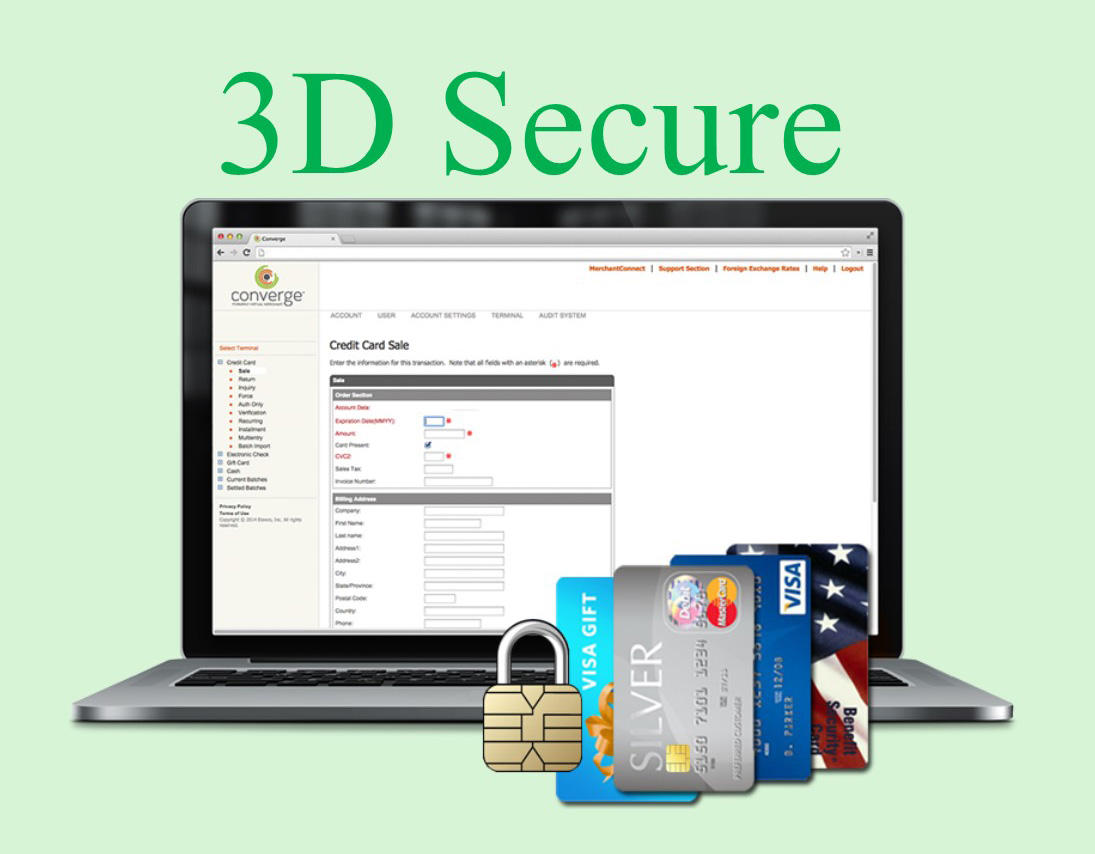
May 1st, 2017 by Elma Jane
3D Secure Authentication
One of the biggest frustration for e-Commerce businesses has been the risk of chargebacks. If a shopper were to tell their issuers that they did not authorize an Internet purchase with their credit card, the merchant can lose the chargeback and the product.
By using 3D Secure capabilities, merchants get detailed evidence of authorized purchases “authentication data”.
The authentication data, together with an authorization approval gives you a transaction that is guaranteed against the most common types of chargebacks: Cardholder not authorized and cardholder not recognized chargebacks.
3D Secure is a security tool that enables cardholders to authenticate their identity to their card issuer through the use of Visa’s Verified by Visa and MasterCard’s SecureCode services.
3D Secure adds another layer of security to cardholders by preventing fraudulent purchases in an e-Commerce environment and reducing the number of unauthorized transactions.
NTC’s Virtual Merchant users processing transactions in an integrated e-Commerce environment are able to take advantage of this functionality.
3D Secure processing is supported with MasterCard and Visa transactions only. Other card types will process as normal and will not trigger 3D secure processing.
For e-Commerce Electronic Payments set up with 3D Secure
call now 888-996-2273! or click here NationalTransaction.Com
Posted in Best Practices for Merchants, Credit Card Security, e-commerce & m-commerce, Electronic Payments, Visa MasterCard American Express Tagged with: chargebacks, credit card, data, e-commerce, electronic payments, MasterCard, merchant, Security, transaction, visa
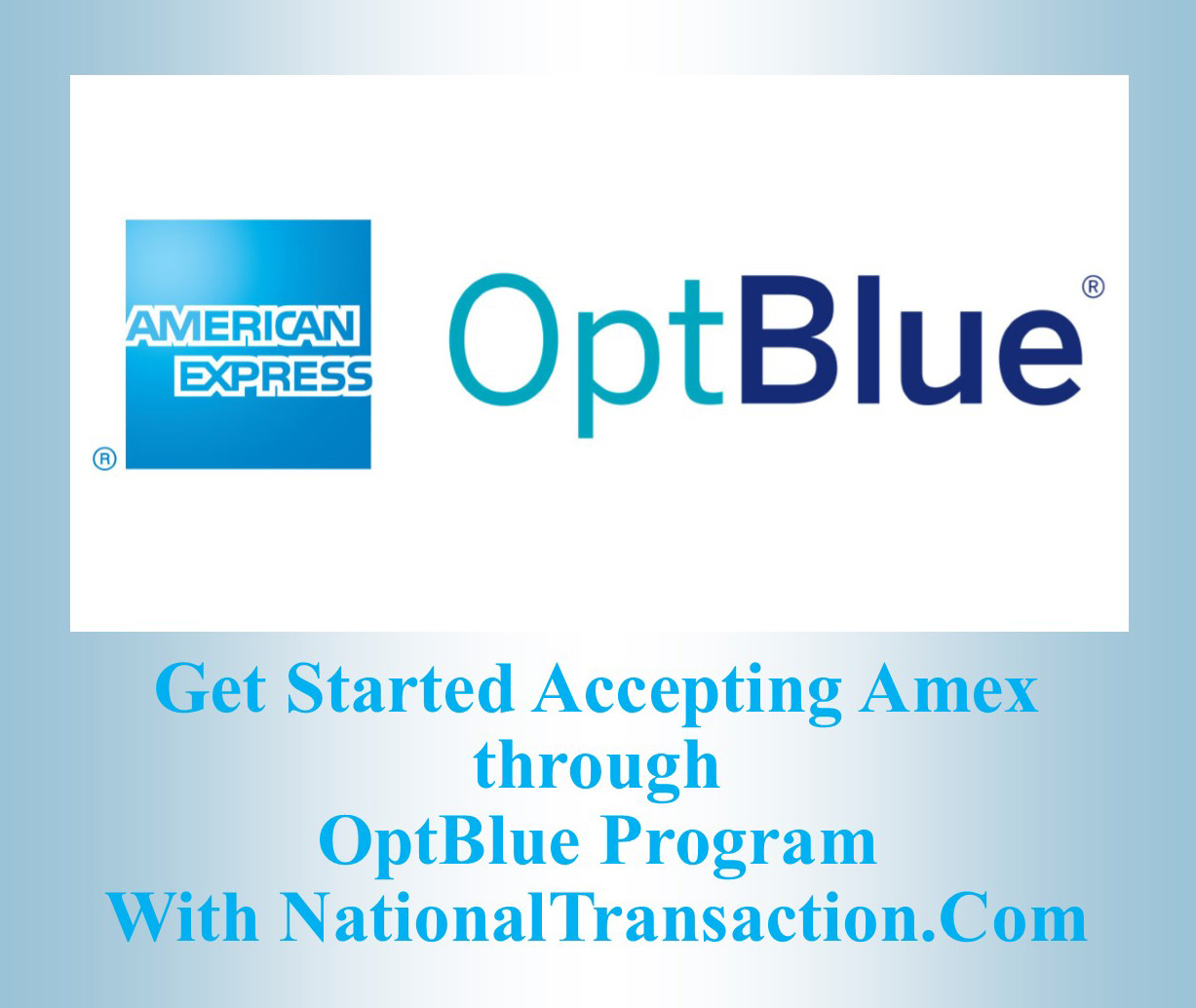
April 18th, 2017 by Elma Jane
NTC Amex OptBlue Program rate are a lot more competitive, with NTC Amex OptBlue you can find a rate that’s right for your business and a faster, easier way to accept the card.
Amex OptBlue Program allows smaller businesses to accept American Express credit cards without paying excessively higher rates. Those who sign up for this program can automatically bundle American Express along with the other major card brands that they already accepting.
Before Optblue, you had one rate option for American Express Card acceptance. Now, because your Merchant Service Provider sets the rate, you could find a deal that works for you.
In some cases, Amex OptBlue is lower than Visa and MasterCard.
If you’re an existing merchant adding Amex Optblue is easy with NTC. You’ll get paid at the same time as your other card brands. One fast deposit!
All the credit cards you accept in one simple statement.
One Customer Service Contact. We can answer questions for every card you take with us.
Give us a call now 888-996-2273 or fill out the form NationalTransaction.Com and we’ll help you get going with Amex OptBlue.
Posted in Best Practices for Merchants Tagged with: amex, card, MasterCard, merchant, payment processing, service provider, visa
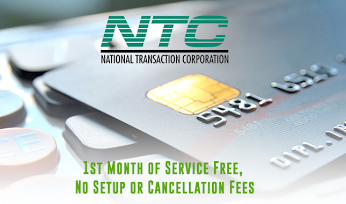
December 22nd, 2016 by Elma Jane
What is a Merchant Account?
If you want to remain competitive virtually, every business needs access to a merchant account to accept card payments from their customers. “Merchant” is another word for a seller or business owner. Merchant accounts are not depository accounts like checking and savings accounts; they are considered a line of credit. This allows a merchant to receive funding for the credit transaction. Therefore, when a customer pays with a credit card; a bank is extending credit to that customer and also making the payment on his/her behalf. As for payment providers or processors; they pay merchants before the banks collect from customers and are therefore extending credit to the merchant, that’s why Merchant account is considered as a LOAN.
Merchant account helps facilitate the complex interactions that need to occur between your business and your customer, the credit card networks (Amex, Discover, MasterCard, Visa) and your payment provider every time you receive a card payment. It helps to ensure that you receive funding as quickly as possible, that the banks are protected from losses, and that buyers are protected from scams. Everyone is held accountable based on the rules of the credit card processing agreement with a merchant account.
There’s cost associated in taking credit cards, but it’s much easier and more secure to open a merchant account than it is to keep a book of credit accounts for all of your customers!
Posted in Best Practices for Merchants, Travel Agency Agents Tagged with: amex, card, credit, customers, Discover, loan, MasterCard, merchant account, payment provider, payments, transaction, visa
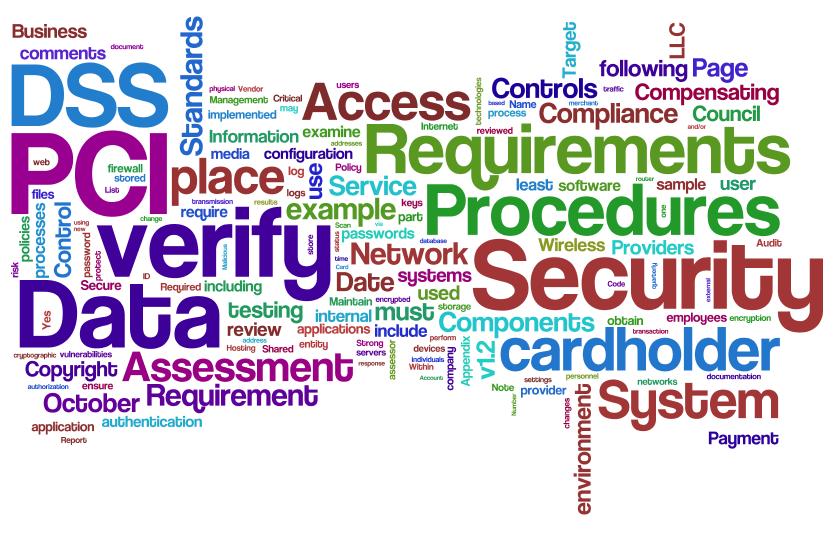
September 21st, 2016 by Elma Jane
PCI compliance applies to any company, organization or merchant of any size or transaction volume that either accepts, stores or transmits cardholder data.
Any merchant accepting payments directly from the customer via credit or debit card must be Compliant. The merchant themselves are therefore responsible for becoming Compliant, as the deadline for the merchant becomes overdue.
Understanding and knowing the details of Payment Card Industry Compliance can help you better prepare your business. Because failing and waiting to become compliant or ignoring them, could end up being an expensive mistake.
The VISA regulations have to adhere to the PCI standard forms as part of the operating regulations. The regulations signed when you open an account at the bank. The rules under which merchants are allowed to operate merchant accounts.
The Payment Card Industry Data Security Standard (PCI DSS) is a proprietary information security standard for organizations that handle branded credit cards from the major card schemes including Visa, MasterCard, American Express, Discover, and JCB.
Posted in Best Practices for Merchants, Credit Card Security, Payment Card Industry PCI Security, Visa MasterCard American Express Tagged with: American Express, cardholder, compliance, credit, customer, data, debit card, Discover, jcb, MasterCard, merchant, Payment Card Industry, payments, PCI, transaction, visa

January 14th, 2016 by Elma Jane
We would like to let our customers know of additional benefits that are coming, in addition of the protection that chip card technology provides.
On January 24, Verifone will release a software update for your card terminal that will include two important new features:
- PIN Debit: With this feature, when your customer pays with a Visa, MasterCard or Discover chip debit card, your terminal will allow you to process it as a debit transaction. The update will change the prompts you’re used to seeing based on how the card is configured.
- Tip Adjust: If your business accepts tips, you will now have the option to add the tip at the time of sale or adjust it later, just like with non-chip card transactions. To use the tip adjust feature, simply skip the tip prompt during the sale.
Once the download is available, your card terminal will automatically receive the new application during its monthly update. For best results, leave your terminal on overnight to ensure it receives the update.
We appreciate your business and we are committed to providing you with solutions to ensure your ongoing transition to chip card acceptance is smooth.
For more information on terminal upgrade, please visit www.chipcardsuccess.com.
Start accepting credit card payments at your business with the following features on your new POS terminal: NFC + EMV PIN & Signature capable. Give us a call now at 888-996-2273 or visit our website www.nationaltransaction.com Payments Expert for Travel Merchants and more!
Posted in Best Practices for Merchants, EMV EuroPay MasterCard Visa, Near Field Communication, Point of Sale, Travel Agency Agents, Visa MasterCard American Express Tagged with: card, customers, EMV, MasterCard, merchants, nfc, payments, POS, transaction, travel, visa
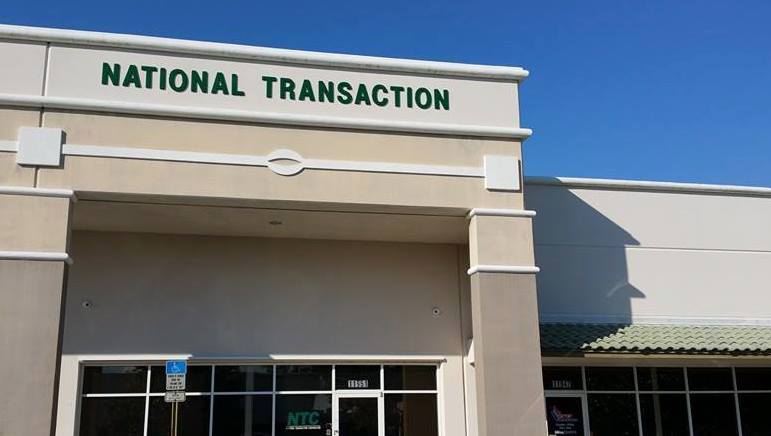
December 1st, 2015 by Elma Jane
Merchant account Aggregators has one merchant account that they let people use. You get quick setup, and get shut down quickly. A post approval risk management technique!
What’s the problem with Aggregators? If anything unusual happens their only recourse is to freeze your account entirely or hold your money. Most Aggregators are hard to get hold of because they don’t have human customer support.
Visa and MasterCard monitor Aggregators very closely. Once an individual or business sells more than $100,000, they force the Aggregator to issue individual, traditional Merchant Accounts for the business.
Aggregator is not intended as a long term, scalable solution to accepting payments.
While Aggregators have a One to Many structure, Traditional Merchant Accounts like National Transaction have a One to One structure. Traditional Merchant Accounts are not balancing the risk of your account against others, they want details on your specific situation before they give you a Merchant Account.
Traditional Merchant Account look at three things:
Your personal history “credit”, your business history if you have one and your business model. If you are working with the Right Merchant Account provider, they will know your business and understand the risk before you accept cards. They have other options to mitigate the risk than simply freezing funds or closing your account.
Why you may want to consider National Transaction over Aggregators, of the thousands of Merchant Account providers out there, only about 1% of them consider themselves High Risk Providers like National Transaction, which despite the abrasive term, are the ones who do effective underwriting.
Give us a call now at 888-996-2273 https://www.nationaltransaction.com/
Posted in Best Practices for Merchants Tagged with: aggregators, High Risk Providers, MasterCard, merchant account, payments, visa
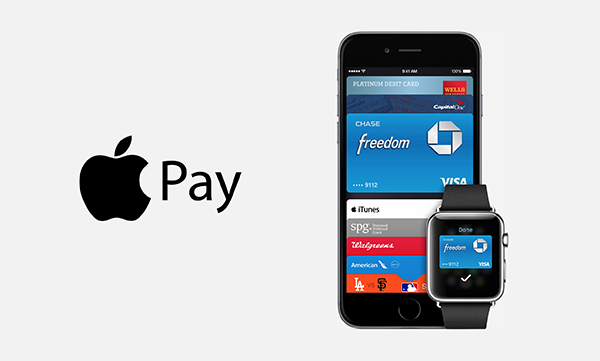
November 17th, 2015 by Elma Jane
Get your Business Ready for Apple Pay and Let your Customers know you Accept Apple Pay!
Business owners can order Apple Pay Decals for their Stores. Each Packs includes Two Glass Decals and Two Register Decals in different sizes, and a tool for affixing the ads to the appropriate surfaces. Those who need more than five will need to call Apple to place an order.
Apple made the Apple Pay Logo available for download and provided a PDF explaining its guidelines. Apple specifies that the Apple Pay Logo should be placed ahead of similar marks for other payment services like MasterCard and Visa. The guidelines document of the payment mark are available from the Apple Site.
It’s easy!
Click here to download Apple Pay mark to use within email, on your terminal screen, and on your website.
Order Apple Pay decals for your store to put on your storefront window and register.
National Transaction Terminals with EMV/NFC (near field communication) Capability to accept Apple Pay, Android Pay and other NFC payment transactions at your business. Give us a call now at 888-996-2273.
Posted in Best Practices for Merchants Tagged with: Android Pay, Apple Pay, EMV, MasterCard, Near Field Communication, nfc, payment services, payment transactions, terminals, visa

November 6th, 2015 by Elma Jane
Money 20/20 was billed as the largest convention in payments history held in Las Las Vegas, during the last week of October 2015.
The show delivered well-organized, incisive content such as Europay, MasterCard and Visa (EMV) migration, mobile payments, security and omnichannel commerce.
20/20 Highlights
- Alternative lending and credit.
- Bill Payments, Financial Services: Newly released market research provides insights into the future of household bill payments, millennials, and financial services.
- Connected Commerce and the Mobile Enterprise: The Internet of Things is changing the way that consumers interact with their environments. Analysts predict up to 30 billion interactive devices will be connected to the Internet by 2020, noting that many of these devices will be payment-enabled.
- Marketing and Customer Experience: Most marketers agree that the era of demographic profiles and pull marketing is over. Retailers, card brands and information technology professionals looked at the customer experience in the digital world. They explored new marketing practices, trends in e-commerce and mobile commerce, and big data findings in other industries that may be useful to financial service companies.
- Mobile Banking: Banks are undergoing an incremental transformation as they learn to compete with nonbank lenders, balance cash management with digital currencies, and shift from local branches to online and mobile forms of banking.
- Mobile Payments: Payments analysts reviewed Apple Pay a year after its launch and a range of other mobile wallet offerings, and they speculated on how third-party wallets will impact bank apps.
- Payment Card Evolution: Payment card issuers, processors and network service providers analyzed the changing look, feel and role of payment cards in the greater ecosystem. Discussions ranged from card linking to the coolness factor of gift cards to how e-cards are expanding market opportunities.
- POS, Processing and Open Platforms: Executive roundtables with leading acquirers explored front-end and back-end technology and omnichannel commerce for small and midsize businesses.
- Regulatory Landscape: Increased federal and state oversight has had a significant impact on the financial services sector.
- Security: Security analysts made in-depth presentations on tokenization, end-to-end encryption, and secure methods of authentication designed to protect consumers, merchants and industry stakeholders from cybercriminals. Many agreed that EMV implementation in the United States will drive fraudsters to the card-not-present space. They discussed how EMV adoption has changed fraud patterns in other regions and offered examples of best practices geared toward identifying and preventing electronic payment fraud.
More than 10,000 attendees and 3,000 exhibitors from 75 countries attended Money20/20. Financial services professionals from mobile, retail, marketing services, data and technology met at what show organizers described as the intersection of mobile, retail, marketing services, data and technology.
The years to come will be a turning point in the payments sector, and with the recent shift to EMV, the entire conference confirmed that all the players are more interested than ever in finding innovative solutions for combating online fraud.
Posted in Best Practices for Merchants Tagged with: Apple Pay, big data, bill payments, card-not-present, e-commerce, electronic payment, EMV, EuroPay, financial services, Gift Cards, MasterCard, merchants, Mobile Payments, mobile wallet, payments, POS, processors, Service providers, tokenization, visa

October 20th, 2015 by Elma Jane
We’ve covered a lot about EMV, but what about improving security for online and Card-Not-Present transactions? That’s where 3-D Secure comes in.
3-D Secure allows a card holder to authenticate himself while making an online payment.
In a traditional credit card transaction, a payment request is presented to the issuing bank for authorization. The Issuing bank authorizes the transaction based solely on the funds available to the card holder.
With card present, the magnetic strip on the card can be read and a signature collected. This process has now been largely superseded by Chip and PIN which gives the card holder the opportunity to identify himself via a secret PIN code.
An E-commerce transaction is conducted online, without the possibility to access the card physically. Un-authorized usage and fraud are therefore more likely.
3-D Secure allows transactions to be conducted in safety online, greatly reducing the risk of fraud and chargebacks.
How 3-D Secure Works?
When a payment request arrives at the merchant or payment gateway, the Merchant Plug In (MPI) component is activated. The MPI talks to Visa or MasterCard to check if the card is enrolled for 3-D Secure. If the card is not enrolled, this means that either the bank that issued the card is not yet supporting 3-D Secure or it means that the card holder has not yet been registered for the service. If the card is enrolled, the MPI will redirect the card holder to the 3-D Secure authentication web page for the issuing bank; the card holder will then identify himself. The MPI will evaluate the reply from the bank and, if successful, allow the transaction to proceed for authorization. The transaction could still fail for lack of funds or other reasons but is more likely to be approved because of the authentication.
3-D Secure allows 3 domains to work together.
Domain 1: The card holder has the peace of mind that his card is not used without his authorization.
Domain 2: Merchants are protected from fraud and can provide the product and service without delay or extra costs.
Domain 3: Banks see that the transaction has been authenticated and are more likely to approve the transaction, to the convenience of the card holder.
Implementation of 3-D Secure:
Visa is called Verified by Visa.
MasterCard is called Secure Code.
Amex is called SafeKey.
JCB is called J/Secure.
Posted in Best Practices for Merchants, e-commerce & m-commerce, Internet Payment Gateway Tagged with: 3-D Secure, amex, card holder, card present, card-not-present, chargebacks, Chip and PIN, credit card, ecommerce, EMV, fraud, jcb, magnetic strip, MasterCard, merchant, online payment, payment gateway, pin code, visa










